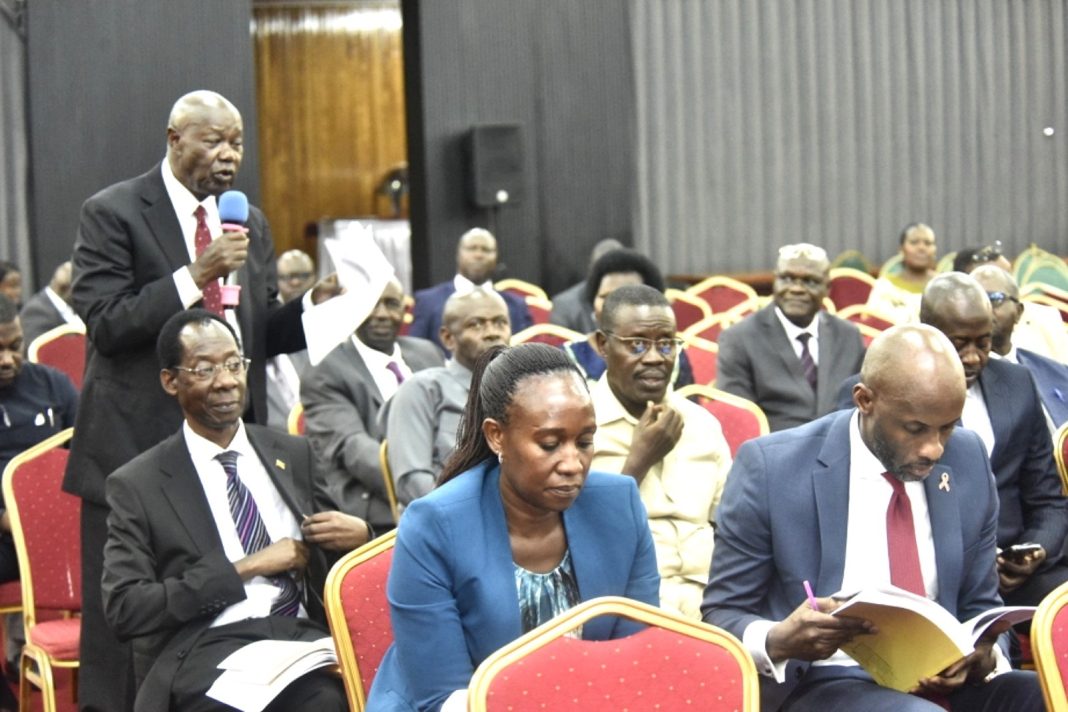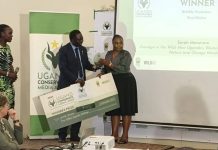Members of Parliament have urged the implementation of significant measures to address congestion in the capital city, including relocating essential government operations to districts such as Nakasongola.
These recommendations were deliberated during a stakeholder meeting convened by the National Planning Authority (NPA) with Members of Parliament on Wednesday, 04 December 2024, at Parliament’s conference hall to discuss the draft National Development Plan IV.
The meeting, presided over by Hon. Amos Kankunda, Chairperson of the Committee on Finance, Planning, and Economic Development, alongside NPA Executive Director, Dr. Joseph Muvawala, gathered lawmakers to explore solutions to the country’s escalating urban challenges.
Hon. John Musila (Independent, Bubulo East County) advocated for a decentralised approach to urban planning, proposing a framework where Kampala Capital City maintains its economic focus while political and administrative functions are shifted to other regions.
“Why should we overburden Kampala with everything? When Parliament is in session, the city becomes unbearable. Why not transfer some functions, such as Parliament, to a new city like Nakasongola? This would generate employment, create new opportunities, and reduce the continuous financial strain on this colonial-era setup,” Musila remarked.
The proposal gained traction among other MPs, including Hon. Alfred Edakasi (NRM, Kaberamaido County), who drew inspiration from cities like Washington D.C.
“Why do we make Kampala the centre for all activities? If we want it to thrive as an economic hub, let us prioritise that. Political operations can be established elsewhere. Gradual investments in a new political city would yield long-term benefits,” Edakasi emphasised, highlighting that decentralisation could ease the burden on Kampala’s overstretched infrastructure.
Infrastructure development emerged as a key focus of the discussions.
Hon. Moses Ogwal (NRM, Dokolo North County) emphasised the need to prioritise roads that enhance productivity and reduce expenses for citizens, rather than focusing solely on the number of kilometres constructed.
“For example, constructing a road in Dokolo could save 164 kilometres of travel and significantly cut fuel costs for farmers and traders. Our investments should translate into practical benefits,” Ogwal noted.
Ogwal also called for increased investment in ICT to curb corruption, suggesting that technology could improve the accountability of public resources.
Tourism also came under the spotlight, with Hon. Mary Begumisa (NRM, Ssembabule District Woman Representative) advocating for the enhancement of the Entebbe-Kampala Road.
“This road serves as a gateway for international visitors, including dignitaries, yet it is cluttered with fish stalls and litter. For many visitors, it’s their first impression of Uganda. Beautifying it would improve our global reputation,” she stated.
Col. Victor Nekesa, representing the UPDF, raised concerns about Kampala’s environmental challenges, warning that pollution posed severe health risks.
“Kampala is so polluted that it heightens the likelihood of illnesses like cancer. We need pollution monitors to guide urban planning and foster sustainable development,” Nekesa cautioned.
The MPs further highlighted the broader economic and social advantages of decentralisation.
Hon. Musila reiterated that moving Parliament to a new political city could stimulate regional development.
“Envision relocating Parliament to Nakasongola. Housing, employment, and services would follow, sparking new growth in the region, while Kampala could concentrate on becoming a robust economic centre,” he said.
Dr. Muvawala assured the MPs that their inputs would be incorporated into the final draft of the National Development Plan IV.























